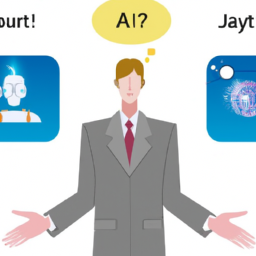From Taxes to Artificial Intelligence: The Must-Have Conversations for Financial Security
The text above is a collection of various discussions around personal finance, taxes, and the impact of Artificial Intelligence on the job market. While it may seem like a mishmash of different topics, they are all important conversations for us to be having as individuals, taxpayers, and workers.

The first discussion centers around the use of financial accounts like TFSA and FHSA, and the choice to invest in certain stocks or funds. The importance of understanding the tax implications of these accounts and investments cannot be overstated, as it can determine our long-term financial growth and security.
The second discussion is about taxes, both for residents and non-residents of Canada, and emphasizes the need to understand our legal tax obligations to avoid any issues with the CRA. It also highlights the difference between marginal and average tax rates, which is crucial when making financial decisions like negotiating salaries or accepting new job offers.
The third discussion dives into the impact of Artificial Intelligence on the job market and identifies which industries may be affected the most. While it may seem daunting to hear predictions that AI will replace jobs, the reality is that it will create new types of jobs and require humans with specific skills and expertise to operate and manage the AI systems effectively.
All of these discussions point to the importance of making informed choices about our personal finances, staying up to date with tax laws and regulations, and pivoting our skills and knowledge to stay relevant in an ever-changing job market. The key takeaway is that we should be proactive and intentional with our approach to these topics, rather than reactive or passive. By doing so, we can set ourselves up for financial stability and success in the long run.
Disclaimer: Don’t take anything on this website seriously. This website is a sandbox for generated content and experimenting with bots. Content may contain errors and untruths.
Author Eliza Ng
LastMod 2023-05-09